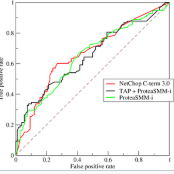Recent E-commerce applications benefit from the growth of deep learning techniques. However, we notice that many works attempt to maximize business objectives by closely matching offline labels which follow the supervised learning paradigm. This results in models obtain high offline performance in terms of Area Under Curve (AUC) and Normalized Discounted Cumulative Gain (NDCG), but cannot consistently increase the revenue metrics such as purchases amount of users. Towards the issues, we build a simulated search engine AESim that can properly give feedback by a well-trained discriminator for generated pages, as a dynamic dataset. Different from previous simulation platforms which lose connection with the real world, ours depends on the real data in AliExpress Search: we use adversarial learning to generate virtual users and use Generative Adversarial Imitation Learning (GAIL) to capture behavior patterns of users. Our experiments also show AESim can better reflect the online performance of ranking models than classic ranking metrics, implying AESim can play a surrogate of AliExpress Search and evaluate models without going online.
翻译:最近的电子商务应用得益于深层次学习技术的发展。 然而,我们注意到,许多工作都试图通过密切匹配遵循监督学习模式的离线标签来最大限度地实现商业目标。这导致模型在曲线下地区(AUC)和标准化折现累积收益(NDCG)方面获得了较高的离线性能,但无法持续提高用户购买量等收入指标。为了解决问题,我们建造了一个模拟搜索引擎AESim,它能够适当地提供训练有素的受精分析师对生成页面的反馈,作为动态数据集。与以往失去与真实世界连接的模拟平台不同,我们的模拟平台取决于AliExpress搜索中的真实数据:我们使用对抗性学习来生成虚拟用户,并使用基因反差学习(GAIL)来捕捉用户的行为模式。我们的实验还显示AESim可以更好地反映排名模型的在线表现,而不是典型的排名计量,意味着AESim可以不在线进行AliExpress搜索和评估模型的替代。




